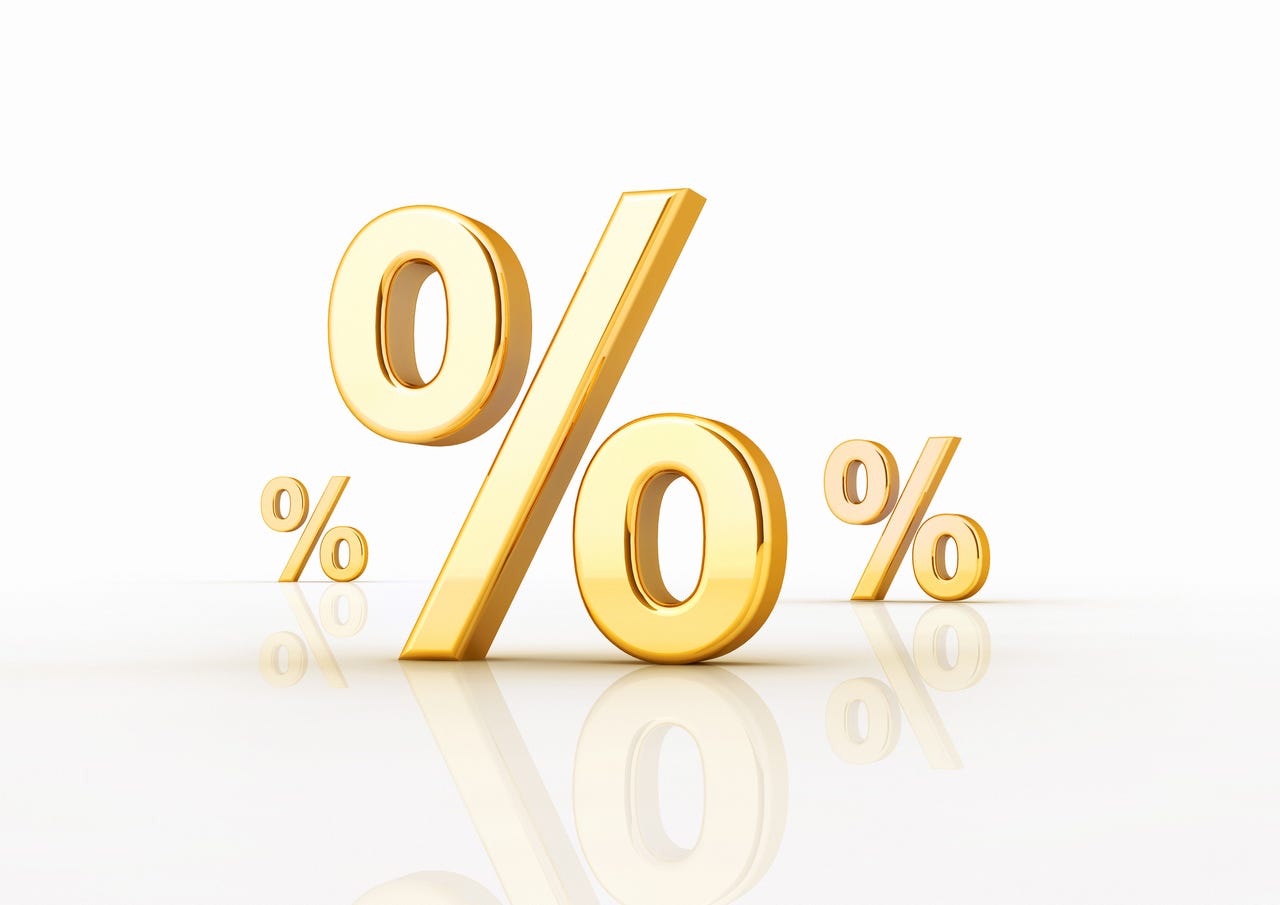































 artpartner-images / Getty
artpartner-images / Getty The content on this page is accurate as of the posting date; however, some of the offers mentioned may have expired.
When it comes to shopping for a credit card, you'll want to investigate several different features based on your needs. But one factor you must absolutely consider is the card'sannual percentage rate (APR).
This figure -- expressed as a percentage -- varies greatly between issuers, and it can determine whether your use of a credit card makes financial sense. If you make a big purchase with a card that has a higher APR, you could end up paying a significant amount of interest on the purchase.
An APR represents the potential interest in financing purchases with a credit card. APRs are influenced by certain types of benchmarks, and they vary based on current economic conditions and the consumer's creditworthiness. As those benchmarks rise and fall, rates on credit cards follow suit.
These top picks will help you continue to build good credit.
Read nowThe word "security" is key to credit card programs. Credit cards are a means of borrowing money for purchases without pledging collateral for that debt. Because credit cards offer unsecured lines of credit, you'll see a huge differentiation in the APR for an automobile loan or mortgage. A five-year car loan might have a 4% APR over the term of the loan, but a credit card APR might be 24.99% from the get-go. A credit card issuer is taking on greater risk because it can't hold a car's title or a house deed as security for the loan.
It's important to pay close attention to a credit card's APR. If you have a high APR and continuously carry a balance, it will take you much longer than planned to pay down debt. Your cash flow could be negatively impacted while you struggle to meet other obligations.
Credit cards have different APR ranges depending on their key features and rewards. The most prevalent APR you should focus on is the regular rate for everyday purchases, regardless of promotional APRs. A card's purchase APR is the one that will stick with you long term if you plan to hang onto the card for a while.
The purchase APR you'll receive when you gain approval for a credit card is directly tied to your credit score. The higher your credit score, the lower your interest rate will be. Top-tier credit applicants may see a 14.99% APR, while cardholders with very good credit might be given an APR of 21.99% for the same card with the same benefits and features.
An introductory purchase APR is a special rate meant to attract new cardholders who plan to make significant purchases. A 0% introductory offer incentivizes credit card shoppers to apply since there's an absence of interest for a specific period of time. Major card issuers offer their customers a chance to finance purchases without interest charges for anywhere from nine to 21 months.
Intro balance transfer APRs offer cardholders a way to avoid high interest charges accrued on other credit card accounts. For example, a customer with a$5,000 balance could transfer it to a new card with a 0% balance transfer APR for a number of months and pay it down while no interest accrues, thereby avoiding hundreds of dollars in interest charges.
You'll notice simple credit cards that don't offer rewards or glitzy travel perks will typically charge a lower APR than premium cards. The cards that offer cash back rewards, points, and miles usually come at a greater cost via higher annual fees and APRs.
Enjoy enhanced rewards and low fees with these five cryptocurrency credit cards.
Read nowThe key to acquiring a low APR hinges on creditworthiness. A card that offers a range of APRs will award applicants with higher credit scores an interest rate at the lower end of the spectrum, while cardholders who are less creditworthy could end up with the maximum interest rate on a card. The Federal Reserve reports the average interest rate for U.S. credit cards is about 15%, but you can find cards that range from the mid-teens to the mid-20s in annual percentage rates.
New cardholders could be eligible for introductory 0% purchase and balance transfer rate offers, and those APRs typically last for 9 to 21 months. Here are three examples of credit cards that offer a 0% intro APR:
The best way to avoid paying interest on a credit card is to steer clear of carrying a balance. By making purchases that fit into your monthly budget, you won't have more bills than you can handle.
However, that plan doesn't work for everyone. The next best strategy would be to get a card that has a low APR. Some banks, for example, issue cards with no rewards that have an APR of 10% or lower. If you plan to carry a balance for a while, you'll have to weigh the absence of rewards on a low-interest card against a card with a higher interest rate that offers lucrative rewards.
[This article was first published on The Simple Dollar in 2020. It was updated in March 2022.]
 Hot Tags :
Finance
Credit Cards
Hot Tags :
Finance
Credit Cards